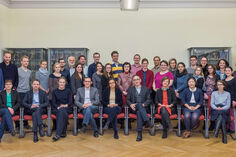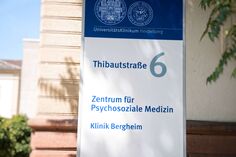GRK 2350, Study C1 (The influence of childhood and adolescene trauma on psychosocial and somatic diseases over lifespan)
Cross-disorder and disorder-specifix changes in social-cognitive functional domains in highly comorbid psychiatric disorders associated with trauma in childhood and adolescence; GRK 2350: The influence of childhood and adolescence trauma on psychosocial and somatic diseases over the lifespan
Leading Investigators: Prof. Dr. med. S.C. Herpertz, Prof. Dr. rer. nat. Katja Bertsch
Further Researchers: Katja Seitz, Marius Schmitz, Dr. phil. Corinne Neukel
Duration: 2018 – 2021
Funding: Deutsche Forschungsgemeinschaft (DFG) (GRK2350 zu belastenden Kindheitserfahrungen)
Traumatic adverse childhood experience (ACE) are considered to be the most important singular predictor of mental disorders, which comes with enormous social costs. One reason could be that ACE leads to massive changes in the processing of social stimuli. However, so far there have been few studies in which trans diagnostic and diagnostic-specific effects of ACE on social cognition have been investigated.
For this reason, we are investigating in several experiments the effects of ACE on the processing of social stimuli in individuals with acute post-traumatic stress disorder (PTSD), somatic stress disorder and depression. These disorders are highly prevalant and often occur as a result of ACE. In addition, there is a high comorbidity among these disorders. The processing of social stimuli are investigated by means of validated behavioural experiments, which capture threat sensitivy, social reward processing and theory of mind capabilities in addition to the behavioral markers, the underlying neural correlates of threat sensitivity, social reward processing and theory of mind are to be determined using functional magnetic resonance imaging. An exploratory data analysis will investigate the relationship between the nature, timing and intenity of the ACE, measures of intra-and interpersonal emotion regulation, and indicators of interoceptive body perception.
This project will provide important insights into the transdiagnostic and disorder-specific mechanisms associated with ACE in three highly prevalent clinical diagnostic groups. Mechanisms shared by all diagnostic groups are a promising point for the development of effective, transdiagnostic therapeutic approaches.



